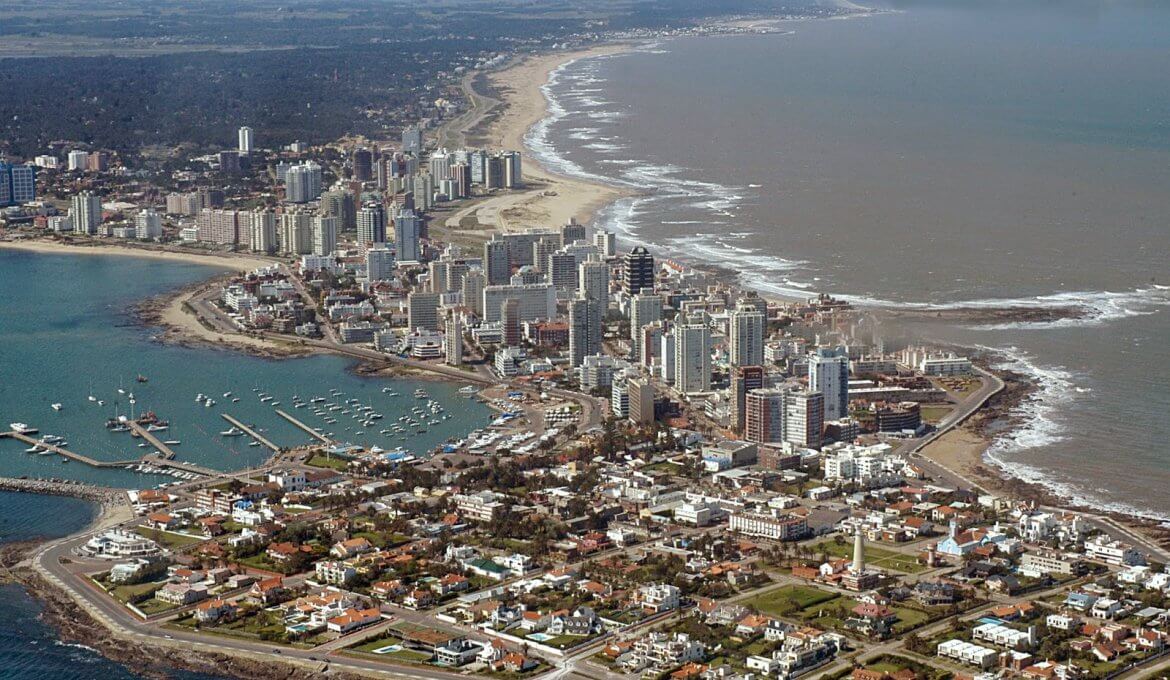RIO DE JANEIRO, BRAZIL – Punta del Este, Uruguay‘s busiest resort, is virtually the weekend home of wealthy Argentinians.
Now they have taken one step further. Driven by a range of measures designed to attract more residents to the small country and its relative tranquility in the face of the pandemic, some 30,000 Argentinians have been moving to their neighbor since March, which has triggered an unprecedented real estate and commercial boom in the small town of 10,000 permanent residents.
“There are old and retired people among the immigrants, but most of them are people who want to invest in established businesses,” says Marina Oliphant, director of Focus Properties Real Estate, which specializes in advising foreigners in Punta del Este.

In addition to apartments (a two-bedroom apartment costs US$250,000 on average), Focus Properties has negotiated many plots of land, indicative that the Argentinians are there to stay.
A local Mercedes-Benz dealership reports that sales have grown over three-fold in recent months. Facundo, an entrepreneur from Buenos Aires (he prefers not to provide his surname), accustomed to spending his vacations in Uruguay, will cross the Río de la Plata for good by the end of October, together with his wife and children – they are only waiting for the last documents and the end of the works in the four-bedroom home the family bought.
The plan, he says, is to open a fast-food franchise and to escape from three ghosts. One is Covid-19, which, after an initial encouraging fight plan in Argentina involving severe quarantine and containment of infection and deaths, then soared as a result of the disorderly relaxation of the rules, and now tallies almost 25,000 deaths, which prompted the government to reinstate tough rules.
Another factor that frightens Argentinians is the country’s disastrous economic situation, where 30,000 stores and businesses have gone bankrupt, according to the Argentine Chamber of Commerce, and annual inflation hits 41.7 percent. Finally, there is the disillusionment among entrepreneurs with the change of President, from the liberal Mauricio Macri to the Peronist Alberto Fernández, who has as vice-president Cristina Kirchner – they have already imposed an annual tax of up to 2.25 percent on all assets and property, including assets located abroad, and threaten to tax wealth in excess of US$3 billion.
“It’s complicated to have a perspective on the future when you have no idea what tomorrow will be like or whether the money in the bank will be worth anything,” sighs Facundo.
By contrast, in Uruguay, there were just over 2,300 confirmed cases of Covid-19 and 51 deaths. Thanks to a colossal contact testing and tracking program, most schools and restaurants and even some theaters have already reopened. The government has shifted from the left-wing, where it had been for fifteen years, to the liberal Luis Lacalle Pou, who has among his platform planks a demographic turnaround in the country of only 3.5 million inhabitants, low birth rate, and many elderly. A decree issued in July and passed by Congress in August has greatly simplified the settlement of wealthy foreigners in the country.
To qualify as residents, they need to buy a home costing at least US$380,000 – it was US$1.7 million before. In the case of entrepreneurs, the minimum investment in a business was reduced from US$5.5 million to US$1.6 million. The tax exemption has doubled from five to ten years. In addition, the obligation to spend time in the country was reduced from six to two months. “Uruguay is an open-door nation, with a migratory policy that offers public, legal, and economic security to all people who wish to settle here,” says Lacalle Pou.
In retaliation against the flight of millionaires, the Casa Rosada determined that Argentineans who move will be required to live at least six months a year in the new country and spend a maximum of ninety days a year in Argentina, under penalty of being doubly taxed. The Argentinian Foreign Minister Felipe Solá, referring to the elite who are migrating to Uruguay, defined them as “a small group that has no trouble living here or anywhere in the world”.
Emigration is perceived as a way out for the citizens who are in a position to do so with every great crisis that the country experiences. “The feeling of wanting to leave is intensified with the repetition of the same problems,” says Alejandro Piscitelli, director of the Sociology Department of the Pontifical Catholic University of Argentina. The preferred destinations were Europe and the United States. With Uruguay right next door, and offering advantages, packing one’s suitcase and leaving has become easier than ever.
Source: Veja

